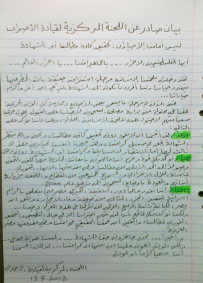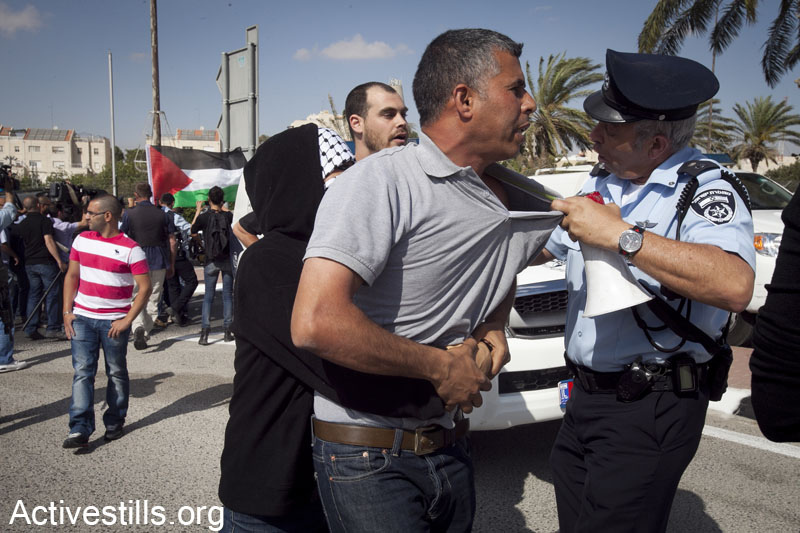Tag: Prisoner Rights
-
Statement No. 7 of the Strike leadership
by The Central Committee of the Leadership of the Strike 13 May 2012 | Samidoun We have only two options: to achieve all of our demands, or to die Free Palestinian people, masses of our nation, free people of the world…. We have entered a stage of legendary and draining human struggle, where we face…
-
Activists seal off settlement in solidarity with hunger strikers
13 May 2012 | Popular Struggle Coordination Committee Protesters blocked the entrance to the Ma’ale Adumim settlement, meters away from one of Israel’s main interrogation centers in the West Bank. Two protesters were arrested. 50 Palestinian, Israeli and international activists blocked the entrance of the Ma’ale Adumim settlement today, in support of the Palestinian prisoners’…
-
Thaer Halahleh: “My Beloved Lamar…Forgive me”
13 May 2012 “My Beloved Lamar, forgive me because the occupation took me away from you, and took away from me the pleasure of witnessing my firstborn child that I have always prayed to God to see, to kiss, to be happy with. It is not your fault; this is our destiny as Palestinian people…


